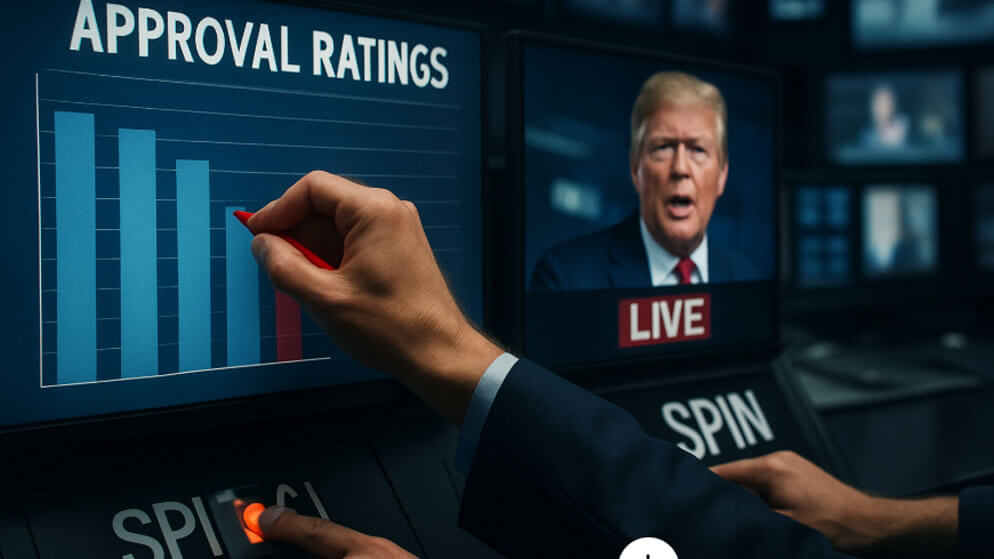Richard Baris, a notable figure in the realm of public opinion polling, has openly accused several major media outlets and their polling partners of employing biased techniques in evaluating President Donald Trump's performance during his first 100 days in office. His comments were made during an appearance on “Just the News, No Noise” on Monday.
Baris contended that the same faulty practices that led to inaccurate predictions in the 2024 election are being used again to depict Trump's presidency in a negative light. He pointed to recent polls, such as one by ABC News/Washington Post/Ipsos indicating a 55 percent disapproval rate, and a CNN poll showing a 41 percent approval rating for Trump. These figures have been leveraged by the media to portray an image of instability and unpopularity surrounding the Trump administration.
"We saw a slew of polling before the election, including pollsters that came out over the weekend with the 100-day narrative, and they were all wrong." Just The News - Richard Baris on "Just the News, No Noise" TV show
However, Baris argues that the polls are not reflective of the American public's actual views but rather the media's predetermined narratives. He asserts that when questions are framed to consider the potential payoff of Trump's strategies, the public's responses are markedly different.
Baris emphasized that many pollsters who missed the mark in the 2024 election are continuing to use the same flawed methodologies, notably undercounting Trump's support base. He observed a consistent discrepancy of five to seven points between these pollsters' findings and those from firms that have historically produced more accurate election forecasts.
Critics of mainstream polling practices have raised concerns about samples being overly reliant on urban and suburban demographics, coupled with question framing that may skew results. Further skepticism has been fueled by a report from Resist the Mainstream on a New York Times/Siena College poll, which used descriptors like "chaotic" and "scary" for Trump's second term, with 66 percent of voters agreeing with the former and 59 percent with the latter. Conservatives challenge the objectivity of such language, suggesting it aligns more with media bias than a factual assessment.
In his discussion with Just the News, Baris implied that these characterizations are part of a wider media scheme to instill doubt among swing voters. He cautioned that persistent misrepresentation of Trump's support could erode trust in polling institutions over time.
As the 2028 election cycle looms, Baris's critique is set to spark further discourse on political polling's accuracy and integrity, especially as Trump continues to pursue his policy objectives and endeavors to communicate directly with the populace, bypassing traditional media channels.





